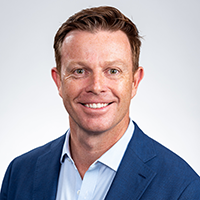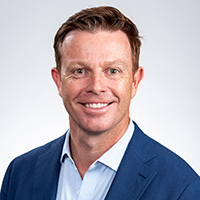
How Netflix and JPMorgan Can Help Your Bank Win Right Now
 As one of the best-performing stocks on Wall Street, you can bank on Netflix spending billions of dollars on even more original programming, even without a profit. Likewise, JPMorgan Chase & Co.’s consumer and community banking unit attracted a record amount of net new money in the third quarter.
As one of the best-performing stocks on Wall Street, you can bank on Netflix spending billions of dollars on even more original programming, even without a profit. Likewise, JPMorgan Chase & Co.’s consumer and community banking unit attracted a record amount of net new money in the third quarter.
How do I know this, and what’s the same about these two things?
Read their most recent earnings reports. Netflix doesn’t hide its formula for success, and JPMorgan boasts about its 24 percent earnings growth, fueled by the consumer and community banking unit, which beat analyst projections.
While we all have access to information like this, taking the time to dig into and learn about another’s business, even when not in direct competition or correlation to your own, is simply smart business, which is why I share these two points in advance of Bank Director’s annual Bank Compensation & Talent Conference.
Anecdotes like these prove critical to the development of programs like the one we host at the Four Seasons outside of Dallas, Nov. 5-7.
Allow me to explain.
Executives and board members at community banks wrestle with fast-shifting consumer trends — influenced by companies like Netflix — and increasing financial performance pressures influenced by JPMorgan’s deposit gathering strategies.
Many officers and directors recognize that investors in financial institutions prize efficiency, prudence and smart capital allocation. Others sense their small and mid-size business customers expect an experience their bank may not currently offer.
With this in mind, we aim to share current examples of how stand-out business leaders are investing in their organization’s future in order to surface the most timely and relevant information for attendees to ponder.
For instance, you’ll hear me talk about Pinnacle Financial Partners, a $22 billion bank based in Nashville. Terry Turner, the bank’s CEO, shared this in their most recent earnings report:
“Our model of hiring experienced bankers to produce outsized loan and deposit growth continues to work extremely well. Last week, we announced that we had hired 23 high-profile revenue producers across all of our markets during the third quarter, a strong predictor of our continued future growth. This compares to 39 hires in the second quarter and 22 in the first quarter. We believe our recruiting strategies are hitting on all cylinders and have resulted in accelerated hiring in our markets, which is our principal investment in future growth.”
This philosophy personally resonates, as I believe financial institutions need to (a) have the right people, (b) strategically set expectations around core concepts of how the bank makes money, approaches credit, structures loans, attracts deposits and prices its products in order to (c) perform on an appropriate and repeatable level.
Pinnacle’s recruitment efforts also align with many pieces of this year’s conference. We will talk strategically about talent and compensation strategies and structuring teams for the future, and we will also explore emerging initiatives to enhance recruiting efforts.
We will also explore big-picture concepts like:
Making Incredible Hires
While you’re courting top talent, let’s start the conversation about joining the business as well as painting the picture about how all of this works.
Embracing Moments of Transformation
With advances in technology, we will help you devise a clear vision for where your people are heading.
Creating Inclusive Environments
With culture becoming a key differentiator, we will explore what makes for a high-performing team culture in the financial sector.
As we prepare to welcome nearly 300 men and women to Dallas to talk about building teams and developing talent, pay attention to the former Federal Reserve Chairman, Alan Greenspan. He recently told CNBC’s “Squawk Box” that the United States has the “the tightest market, labor market, I’ve ever seen… concurrently, we have a very slow productivity increase.”
What does this mean for banks in the next one to three years? Hint: we’ll talk about it at #BDComp18.



